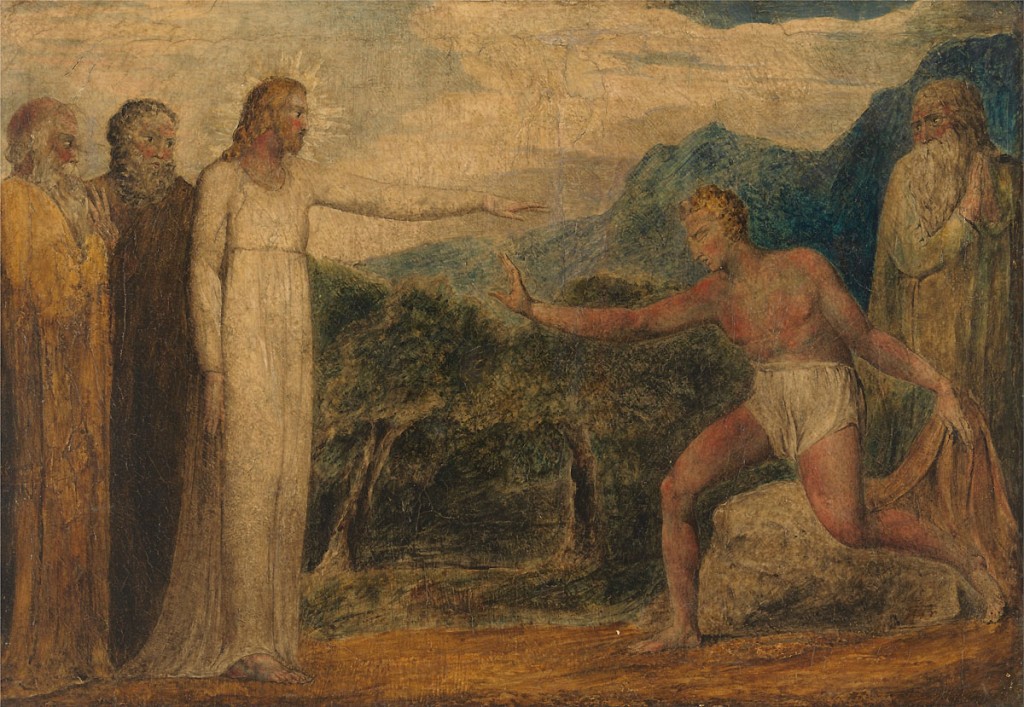Last time I mentioned a few bad types of exegesis, and only discussed one of them. The other was this idea that we are getting behind the text to some sort of historical event. As such the four gospels and Acts, are a mere bridge to take us to the real story behind the words. I think this coincides with our nature as post Enlightenment, Darwinian, empiricists. We have very little use for information gained by logical reasoning, or wisdom imparted by story. We want to dissect reality with our own hands and take it in with our own senses before we believe anything. And so we do the same to these texts. We deconstruct them into little bits and then attempt to reconstruct the event behind the texts. It’s all very scientific sounding and we like to pride ourselves in our ability to use the texts like we use everything else, for our own glory or pragmatic ends.
I think this really downplays the inspiration of the authors. They were there they saw the events and if you believe Orthodoxy, they wrote their books by divine inspiration. We were not there we don’t know what happened, aside from their accounts, their stories. The same goes for the creation of the Earth. We were not there and we would do best to consider the account of someone who was, and it’s purpose. It is far more important to know why we exist and our place in this universe, than to know how, it is we came to exist. It may be that science at it’s best might one day tell us the answer to the latter question, but it is completely incapable of answering the first. Just because I know how it all went down, does not get me any closer to understanding the significance of the sun moon and stars or Jesus the Christ.
 The author of Genesis was not giving us arguments to use on Darwinian Atheists, or a way to understand the universe that we might, manipulate it more by the magic of the applied sciences. They were telling us the story of God’s relationship to mankind, and his chosen people. In the same way, the Gospel writers were not giving us a police report of the events that transpired from 15BC to 35AD. They were bearing witness to the fact that Jesus the Christ came to fulfill the Old Testament, he was the predicted Messiah. He came to usher in the end of the age of the Jewish people and to graft in a new people, his very body, the Church. Trying to use these texts for purposes other than the author intended can be downright heretical. And arguments over how to jam these gospel shaped pegs into modern shaped minds is really a waste of time. You can find a recognized scholar somewhere who will blatantly reject any aspect of anything in scripture. So let’s just ignore all of them and try to take texts on their own terms, through the Church tradition.
The author of Genesis was not giving us arguments to use on Darwinian Atheists, or a way to understand the universe that we might, manipulate it more by the magic of the applied sciences. They were telling us the story of God’s relationship to mankind, and his chosen people. In the same way, the Gospel writers were not giving us a police report of the events that transpired from 15BC to 35AD. They were bearing witness to the fact that Jesus the Christ came to fulfill the Old Testament, he was the predicted Messiah. He came to usher in the end of the age of the Jewish people and to graft in a new people, his very body, the Church. Trying to use these texts for purposes other than the author intended can be downright heretical. And arguments over how to jam these gospel shaped pegs into modern shaped minds is really a waste of time. You can find a recognized scholar somewhere who will blatantly reject any aspect of anything in scripture. So let’s just ignore all of them and try to take texts on their own terms, through the Church tradition.
There is nothing wrong with comparing Gospel accounts, or trying to learn all that we can. But when we chase controversies laid down but the blatant unfaithful, at the expense of the message the authors wanted to convey, we are wasting our time. If we put the slice of scripture in Mark 10:46-52 into the themes of the author, we see it become clear and we can stay away from mantras that fit our fancy.
Most of Christendom saw Mark as revealing the kingly nature of Jesus. It was a theme that went back all the way to the beginning of Israel’s history. Their kings were representative of the people, an their kings had failed. The whole community of Jewish people had failed. They were the chosen people. Yet they were in captivity. Now Jesus was a type of Israel, reenacting their history. Yet this time he would succeed. He would fulfill the Law, by keeping it’s every command perfectly. Mark invokes “leaving Jericho”, not because the exact minute it happened or name of the blind man (In fact the name is probably further word picture.) was of utmost importance, but because we are to remember when Israel left Jericho. Jericho was the first stop when Israel entered the promised land, which would culminate with David and Solomon setting up their kingdom in Jerusalem. Now Jesus ascends to conquer, but he is the true king, the servant king. He will conquer through humility, he will lay down his life, and conquer the ultimate enemy, death. And so raised to the throne of Heaven.
I think it’s a little silly to discuss this blind man’s ultimate salvation; is he a card carrying Evangelical or not? The fact is that the man didn’t just have some generic theoretical doctrinal faith, he really believed that Jesus could heal him in the real world, and so he was healed. Jesus says so. That’s what we know. Jesus again makes a point with his actions. He draws contrast between the blindness of his own disciples and giving a man sight for seeing already, for his faith. Now there is a time for exegeting doctrine, I guess. Jesus sort-of did this, as he pointed to himself in Old Testament texts. But there are more times for action, faithful action. For every non-Christian who has a problem with some exegetical issue in the Bible, I can give you a hundred who have a problem with some Christian. So live like one. Do what he tells you to do. Further, live like he is the type of God who wants to restore sight, who showers gifts upon his children. Live like he is your heavenly father, whom you can run to when you are suffering or in trouble. Don’t run to your doctrine, or your high horse over all those with ‘incorrect’ doctrine.
“And immediately he recovered his sight and followed him on the Way.”

